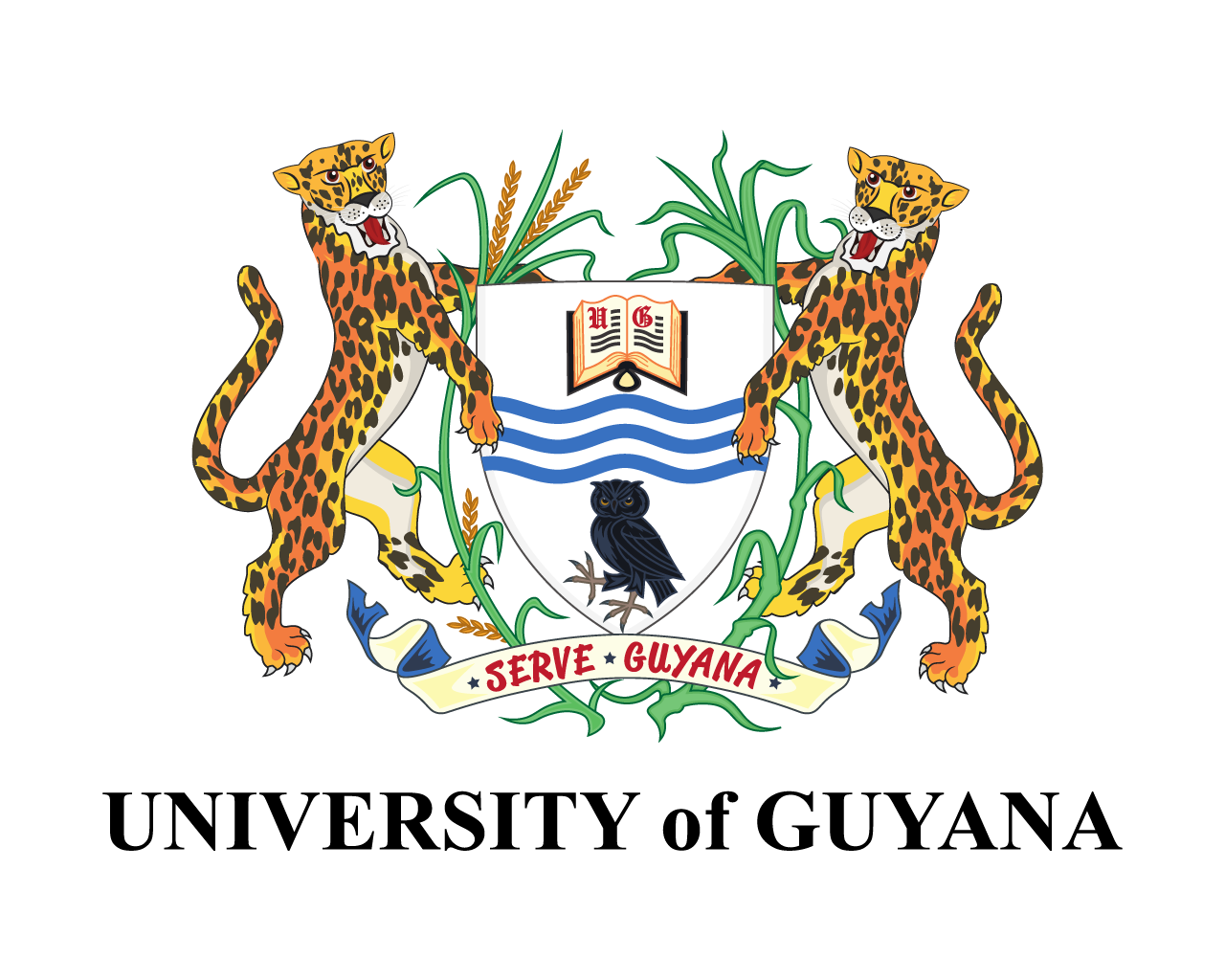
Homage to the late Wilson Harris
Thursday, March 22, 2018 - 15:58The University of Guyana extends words of condolence to Prof E. Nigel Harris and family on the occasion of the loss of author and theorist Sir Wilson Harris. These sentiments are expressed to Prof Harris, as well, in his capacity as Chancellor of the University, an institution long engaged in close association and kinship with Sir Wilson. Yet, this unfathomable loss will be further felt by the nation of Guyana where he was born, and the community of the Caribbean; the United Kingdom where he lived, the commonwealth of the wider world and the one family of all humanity. For those are not only rightful claimants of Harrisian literature, but are all kith and kin in the cross- cultural community as he saw it in the commanding breadth of his vision. No less did he articulate in the genius of his art, his imagination, his fiction, poetry and critical theory. In his parting, mankind is the poorer.
Theodore Wilson Harris (March 24, 1921 – March 8, 2018) was born in New Amsterdam, British Guiana, and lived in Georgetown until 1959 when he moved to England where he lived ever since. His marriage in 1945 to Cecily Carew, sister of another celebrated Guyanese writer Jan Carew, ended in divorce. On relocating to London, he was remarried to Margaret, native of Edinburgh, Scotland, with whom he lived for 50 years until her death in 2010. He is survived by the children of his first marriage – Eon Nigel, Chancellor of the University of Guyana and former Vice-Chancellor of the UWI; Denise, a novelist who won the Guyana Prize for First Book of fiction, 2002; Alexis and Michael.
Harris attended Queens College, then trained as a surveyor and spent several years on professional government expeditions throughout the vast and deep interior rainforests, savannahs and rivers of Guyana. These experiences as a scientist deepened his contact with the Amerindian people, their mythology, traditions and cosmic vision that led him to create a literature that made a profound impact on the wider world, guided by a vision that was at once post- colonial and universal. He stressed cross-culturalism, as opposed to multi-culturality, in which all peoples and cultures are one, but fractured and endangered by a history of conquest and colonisation through which mankind wore the masks of different antagonists in a sequential theatre of wars, genocide and materialist imperialism.
These are over-riding themes of his 26 novels, short stories and the philosophical underpinnings of his literary and critical theories. But he started his writing career as a poet, contributing to the magazine Kyk-Over-Al between 1945 and 1951. The turning point in his career came after he published his poetry and a short play in Eternity to Season in 1954, and his relocation to England in 1959. Thereafter, he focused on fiction and had a meteoric rise in the literary world with his first ground-breaking novel, Palace of the Peacock (1960), published in London by Faber and Faber who so believed in the value and importance of his original and innovative contributions to literature that they continued to publish all of his novels. This included reprinting some of them, including the first four as The Guyana Quartet: Palace of the Peacock, along with The Far Journey of Oudin (1961) and The Whole Armour (1962), two outstanding examples of the Romance novel, and The Secret Ladder (1963), which drew on personal experiences as a government surveyor leading an expedition up the Canje River.
A second group of novels was similarly reprinted together as The Carnival Trilogy (1993). These were Carnival (1985), The Infinite Rehearsal (1987) and The Four Banks of the River of Space (1990). A fourth work – Resurrection at Sorrow Hill (1993) may well be added to these to make a second quartet which extends his preoccupation with cross-cultural explorations, a concern for the rainforests, which are also a warning against the annihilation of mankind through the encounters of history. These are among his most experimental, post-modernist and post-colonial works.
Wilson Harris earned a reputation as a “difficult” writer whose work is inaccessible. Michael Gilkes described his narrative as “maverick”, while others called it “abstract and densely metaphorical”. However, the highest acclaim has been given to his originality and innovation in transforming the form of the modern novel. British writer and critic Kathleen Raine best expresses it as giving rebirth to and rescuing the English novel which “had remained static for 100 years”. Mark McWatt has expounded on the quality of Harris’ relationship with the Amazonian landscape, quoting his statement “the landscape is alive. It is a living text”.
Moreover, he has been acclaimed for “the breadth of his vision”. The range of his fiction extends from deep explorations of the Amerindian psyche, myth, traditions in that series of novels between 1965 and 1971, through a continuing concern for the pre-Columbian invasions and exploitation of the Americas, but also for the complexities of culture and history. Not least among works which engage these is one of his novels set in other countries outside of a Guyanese base. Companions of the Day and Night (1972) is set in Mexico and draws from the ancient posada ritual and carnivalesque dramatisations of the passion of Christ, while Black Marsden (1975) is set in Edinburgh, Scotland, and Da Silva Da Silva’s Cultivated Wilderness plays out in London.
These innovations in the form of fictive narration include his creation of the “fictional autobiography”, exemplified in The Infinite Rehearsal as well as his enlistment of science. Quantum physics, quantum theory and the mathematical theory of Chaos provided him with “quantum fiction” best exemplified in his best-selling novel, Jonestown (1996).
Sir Wilson Harris has received extensive critical attention from his closest friends and scholars at the University of Warwick, Michael Mitchell and David Dabydeen, to further afield, especially Hena Maes Jelinek in Liege and at the University of Texas, inter alia. His honours and awards include The Guyana Prize for Literature, twice – 1987 for Carnival, and again, the Special Award 2002 for one of his several non-fiction works The Unfinished Genesis of the Imagination. He was more than once nominated for the Nobel Prize and was knighted by Queen Elizabeth II in 2010 “for service to literature”.
Harris has visited and delivered lectures at the Turkeyen Campus; his work is studied in both undergraduate and post-graduate literature programmes. The University of Guyana Library has mounted an exhibition of his works along with a complete listing for public showing. All these links, the great honour and the importance of his art are eternally symbolised by the mural painted on the wall of the Faculty of Education and Humanities titled Palace of The Peacock: Homage to Wilson Harris.
###
UG IN BRIEF
With a current enrollment of some 8,000 students, The University of Guyana (UG) has graduated more than 20,000 students who have gone on to successful careers locally, regionally and internationally. The University is also a major contributor to the national economy and to business and industry. Established in 1963 on a part-time basis with shared space at Queens College, UG moved to its own campus at Turkeyen in 1970 and expanded in 2000 with the addition of the Tain Campus. It now offers more than 60 Under-graduate and Post-graduate Programmes including Engineering, Environmental Studies, Forestry, Urban Planning and Management, Business, Entrepreneurship, Tourism Studies, Education, Creative Arts, Economics, Law, Medicine, Optometry and Nursing. Several online programmes are available and UG also offers extra-mural classes at four locations through its Institute of Distance and Continuing Education (IDCE). The UG also offers the opportunity for student engagement in debating, sports, and cultural, religious and professional activities.
Public Relations Division
March 20, 2018
